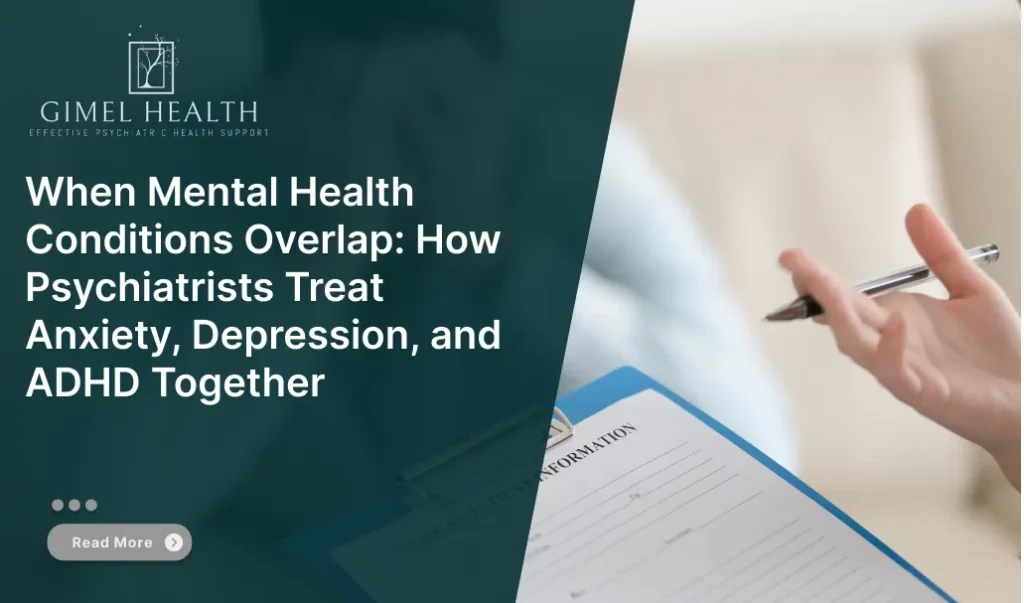
When Mental Health Conditions Overlap: How Psychiatrists Treat Anxiety, Depression, and ADHD Together
If you have ever wondered why your anxiety medication helps your worry but not your focus, or why treating depression
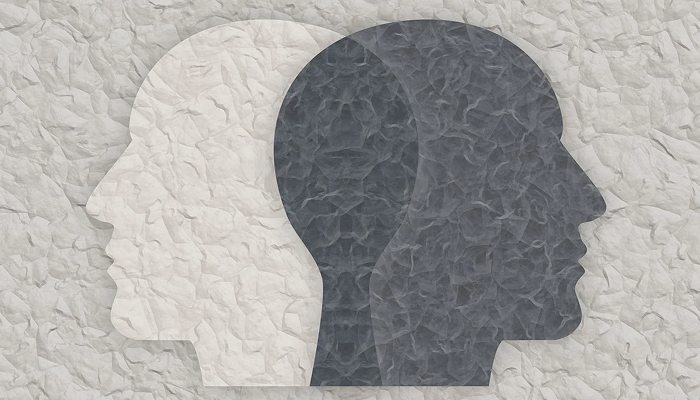
Navigating bipolar depression medication can be overwhelming, especially when symptoms vary, side effects linger, and treatment success often feels like trial and error. At Gimel Health, we provide expert psychiatric evaluation and personalized bipolar depression medication management for individuals struggling with bipolar depression. Our goal? To help you or your loved one find the most effective, evidence-based path to stability and long-term relief.
Bipolar disorder is marked by extreme mood swings: from manic highs to debilitating depressive episodes. While manic phases often respond to mood stabilizers, bipolar depression presents a different challenge. Unlike unipolar depression, bipolar depression can be resistant to standard antidepressants and requires a more cautious, structured treatment plan. That’s where bipolar depression medication comes in, targeted therapies designed to improve depressive symptoms without triggering mania.
Medications commonly used include mood stabilizers, atypical antipsychotics, and adjunctive antidepressants, but effectiveness varies greatly from person to person. That’s why professional guidance is critical.
At Gimel Health, we evaluate each case to determine which bipolar depression medication is most likely to provide symptom relief without unwanted side effects.
The most effective bipolar depression medications are often tailored to individual brain chemistry and symptom severity. Options may include:
While Selective Serotonin Reuptake Inhibitors (SSRIs) are sometimes prescribed off-label, they carry a risk of manic activation in bipolar patients, making psychiatric medication management essential to avoid complications.
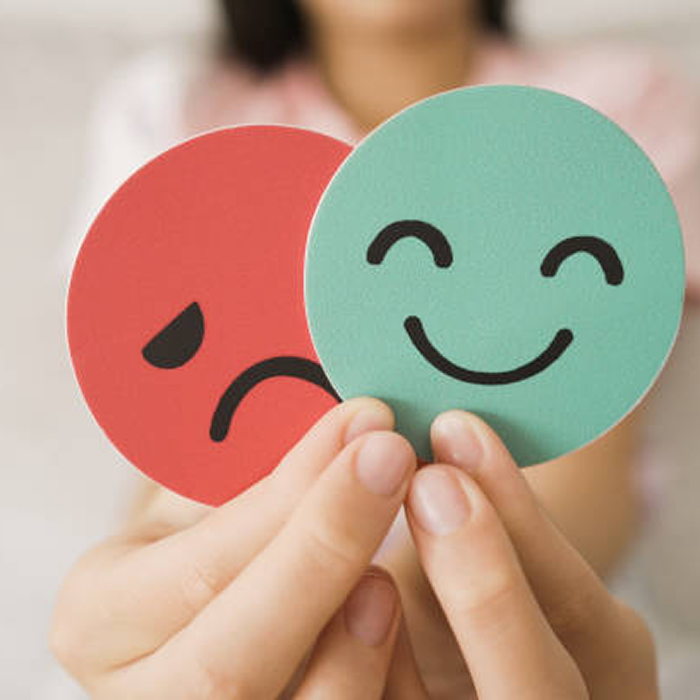
Standard antidepressants like fluoxetine, sertraline, and bupropion can be ineffective—or even harmful—for individuals with bipolar disorder when taken without a mood stabilizer. They may trigger rapid cycling, increased irritability, or manic episodes.
Misdiagnosis is another danger. Many people with bipolar depression are initially diagnosed with major depressive disorder (MDD) and treated with antidepressants alone. Without mood stabilization, this approach can worsen the illness over time. That’s why a full depression evaluation is critical before starting any medication.
No two cases of bipolar depression are alike, which is why Gimel Health offers personalized, data-driven mental health care tailored to your unique needs. Whether you’re newly diagnosed or struggling with treatment-resistant depression, our compassionate clinicians combine medication, therapy, and neuropsychiatric insight to create a well-rounded recovery plan. We proudly support adults, teens, and families across New York and beyond through secure telehealth and in-person visits.
If you’re ready to stop feeling stuck and start feeling supported, book a consultation with Gimel Health today—your path to lasting stability and a better quality of life begins here.

If you have ever wondered why your anxiety medication helps your worry but not your focus, or why treating depression
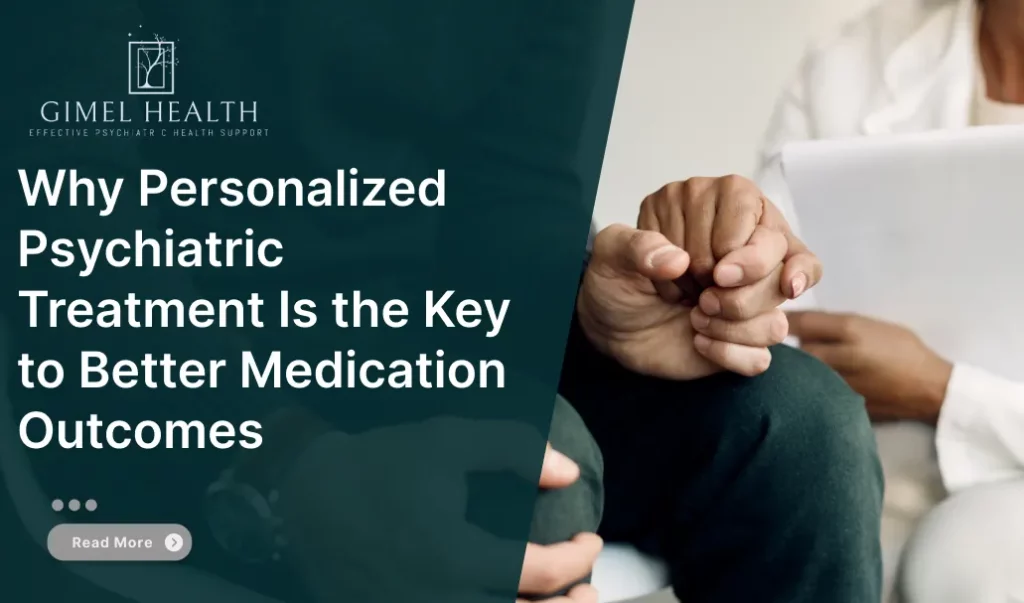
If you have ever started psychiatric medication and wondered why it did not help the way you expected, you are
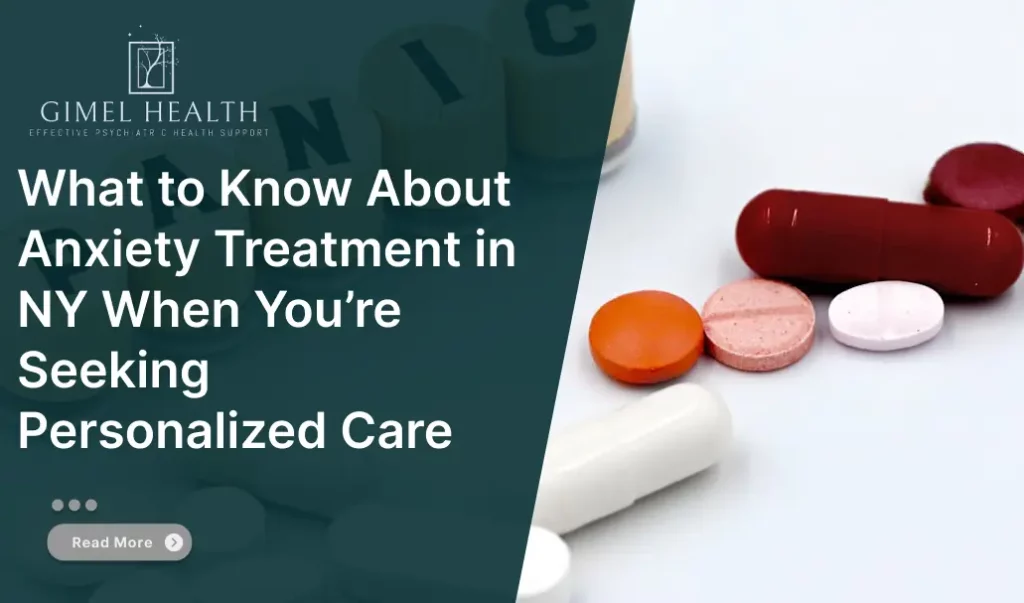
Anxiety is one of the most common mental health challenges facing adults and professionals today. If you are seeking anxiety
Your journey to better mental health starts here. With advanced expertise in biology and psychiatry, I build exclusive medication plans backed by science. Contact me to schedule your initial consultation.
(201) 815-4351
440 West Str, Ste 307, Fort Lee Bergen County NJ 07024
There’s no single “best” option—it depends on the individual. However, lamotrigine, quetiapine, and lurasidone are among the most commonly prescribed and well-researched medications. These are often selected based on clinical trials and patient history to reduce depressive symptoms without triggering mania.
Yes. Traditional antidepressants like SSRIs can trigger manic episodes if not balanced with a mood stabilizer. This is why proper psychiatric medication management is essential when treating bipolar depression—especially for those recently diagnosed or switching treatments.
If you’re experiencing little to no improvement or worsening symptoms, you may have treatment-resistant depression. In these cases, a comprehensive medication review, including past side effects and dosage history, is critical to choosing a more effective combination of therapies.
Some medications begin working within 1–2 weeks, but full benefits often take 4–8 weeks. During this period, psychiatrists track your mood changes and physical symptoms to adjust dosage or explore alternative mental health medication options if needed.
Therapy is an important complement but rarely a substitute. For bipolar depression, cognitive behavioral therapy (CBT) or interpersonal therapy is often used alongside medication to help manage emotional regulation, daily routines, and relapse prevention.
Bipolar depression is diagnosed through a psychiatric evaluation that includes a review of mood history, sleep patterns, energy levels, and family history of mental health disorders. Diagnostic clarity is essential before starting medication to avoid inappropriate treatment, such as using antidepressants alone.
In some cases, yes. Genetic testing can help predict how your body metabolizes certain medications, which can reduce trial-and-error and speed up the path to symptom relief. While not always necessary, it’s often used when patients have experienced poor tolerance to multiple medications.
Yes, but with caution. Stimulant medications for ADHD may exacerbate manic symptoms in individuals with bipolar disorder. A qualified psychiatrist will assess your co-occurring conditions and may prioritize mood stabilization before addressing ADHD symptoms with targeted medication.
We use cookies to improve your experience on our site. By using our site, you consent to cookies.
Manage your cookie preferences below:
Essential cookies enable basic functions and are necessary for the proper function of the website.
These cookies are needed for adding comments on this website.
Google reCAPTCHA helps protect websites from spam and abuse by verifying user interactions through challenges.
Google Tag Manager simplifies the management of marketing tags on your website without code changes.
Statistics cookies collect information anonymously. This information helps us understand how visitors use our website.
Vimeo is a video hosting platform for high-quality content, ideal for creators and businesses to showcase their work.
Service URL: vimeo.com (opens in a new window)
You can find more information in our Cookie Policy and Privacy Policy.